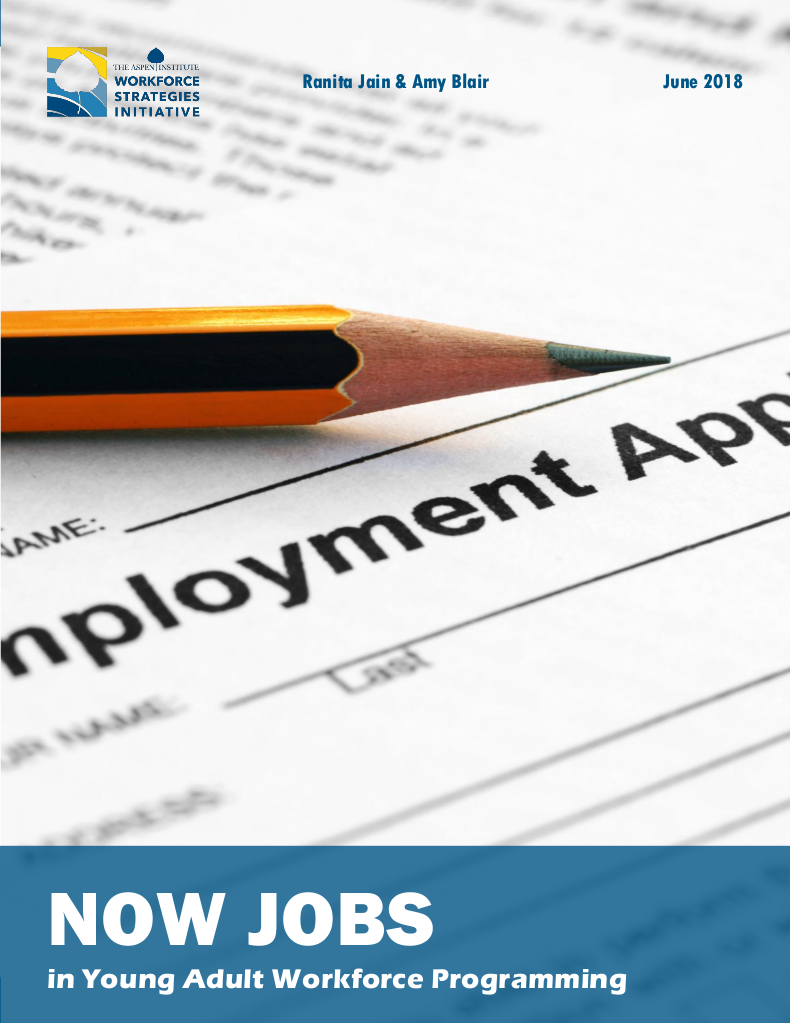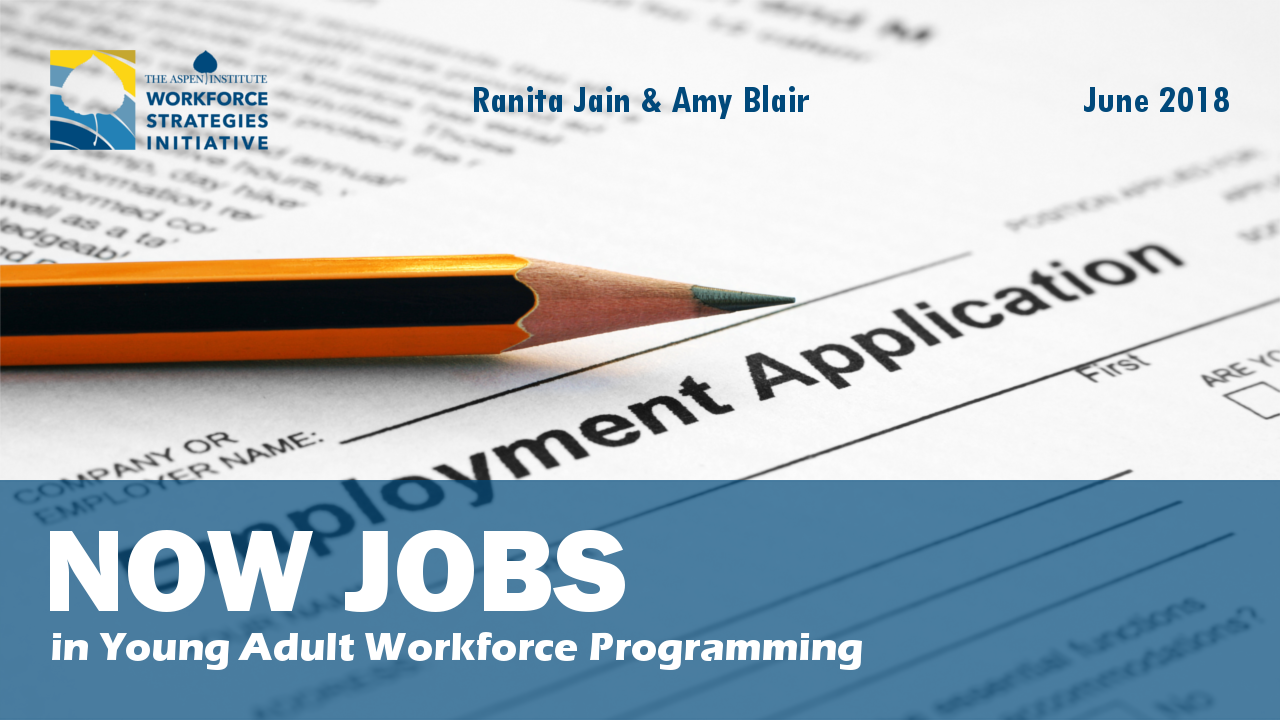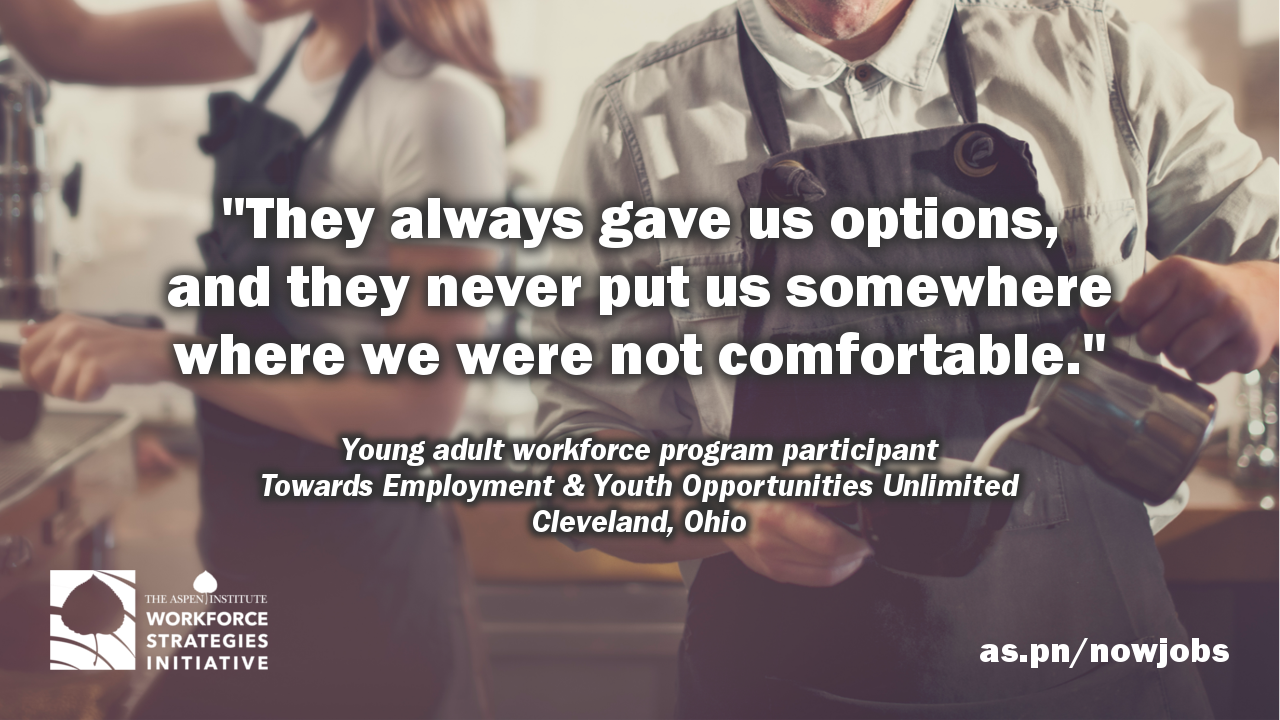Years into the economic recovery, young adults still face difficulty connecting to the labor market. High unemployment is particularly a problem for young people of color. Many live in communities without a strong employment base, have attended low-performing schools, and lack connections to employed adults who can provide guidance and help them explore career interests, identify labor market opportunities, and navigate application processes. Even when jobs that can provide a good standard of living are available, getting the education and experience required for these can be a costly long-term pursuit.
This brief describes a strategy that helps connect young adults to “now jobs” that address their immediate income needs while continuing to prepare them for long-term career opportunities. “Now Jobs” in Young Adult Workforce Programming explores the role of “now jobs” in young adult workforce development. As the brief details, “now jobs,” along with continuing support from a workforce program mentor, serve multiple purposes, including:
- Addressing young adults’ immediate need for income;
- Providing valuable work experience for young adults who have never had a job;
- Providing supported opportunities to learn about workplace behavioral norms and expectations and to try out communication and conflict resolution learned in training; and
- Helping young adults explore their strengths and interests, build relationships, and expand their social networks.
Download “Now Jobs” in Young Adult Workforce Programming to learn more about how workforce service providers are using wage subsidies to provide incentives to businesses that help maximize the benefits of “now jobs” to their young adult participants. Providers are asking hiring managers to consider their workplace environment, who succeeds and who leaves, and operations in the workplace that affect retention. Doing this work requires considerable resources on several fronts to support the longevity of contact and range of activity required for workforce development agencies to build their own staff capacity, establish and maintain relationships with businesses, and engage with young people to help them achieve the stability needed to make progress on longer-term career goals.
Share now
Share your thoughts with us via @AspenWorkforce.
Tweet “Now jobs” build an interim step in employment to help prepare young adults for long-term career opportunities. as.pn/nowjobs
Tweet Many young adults face extraordinary challenges connecting to the labor market. “Now jobs” can help them move ahead. as.pn/nowjobs
Tweet From “now jobs” to “later jobs” – See how @TowardsEmploy & @YOUCleveland are bridging the gap for young adults. as.pn/nowjobs
Tweet “Earn-and-learn” jobs help young adults gain skills while supporting themselves. @OPP_Helps_Youth shows how. as.pn/nowjobs
Images
This research was conducted as part of the Annie E. Casey Foundation’s Generation Work Initiative, which aims to connect more young adults with jobs through demand-driven strategies, including building relationships with businesses and factoring in the needs of the local economy, and positive youth development strategies, such as mentoring and on-the-job learning.
We are grateful to the Annie E. Casey Foundation for their support of this research.
Keep in touch
The Workforce Strategies Initiative explores strategies that help workers attain stability and mobility. Follow us on social media and join our mailing list to stay up-to-date on publications, blog posts, and other announcements.






